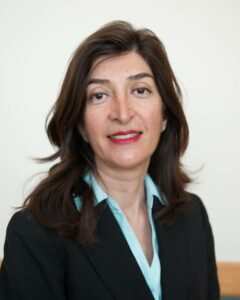International Energy and Sustainability Conference Tackles Energy, Climate Issues
October 21, 2019
FSC’s Eighth Annual International Energy and Sustainability Conference brought energy experts from across the U.S. and around the world to both share their expertise and gain an up-to-date perspective on renewables, new technology, and how they will affect industries, policy developments, programs, and incentives.
Sponsored by the College’s Renewable Energy and Sustainability Center, headed by Director Marjaneh Issapour, the event posed two major questions to attendees:
- Are we prepared to face the challenge of finding and integrating sustainable alternative energy sources in a world with diminishing resources, while maintaining and ensuring energy security?
- What effect will upgrading the grid have on energy efficiency, distributed generation of alternative energy resources, sustainability, green building practices, and green data centers?
The event included 50 sessions, more than a dozen speakers, and better than 500 registrants. Presenters represented the globe, from countries such as Germany, Colombia, Malaysia, China, Bangladesh, Pakistan, Romania, and more. Students came from institutions such as California State, Stony Brook, Binghamton, Buffalo State, Rutgers, Molloy, and others.
A surprise appearance was made by New York Lieutenant Governor Kathy Hochul, a long-time champion of renewable energy and sustainability. Her opening remarks praised FSC both for its role in the early days of the College in equipping students for jobs in the Long Island agricultural economy, and now, for its initiative in wind energy workforce training for future careers in the energy industry. She also talked about:
- NYS’s leadership in adopting the goals of the Paris Agreement, even though it is no longer a national goal
- NYS’s collaboration with other states to build a clean-energy alliance
- The state leading the nation with ambitious renewable energy and sustainability legislation, with targets of 100 percent carbon-free electricity by 2040, and economy-wide, net-zero carbon emissions by 2050.
- Her childhood growing up near Lake Erie, which was being polluted by companies dumping toxic waste. At the time, she said, area residents didn’t understand the implications of polluted water and air. The area has since been cleaned up and the lake is now pristine and suitable for swimming.








